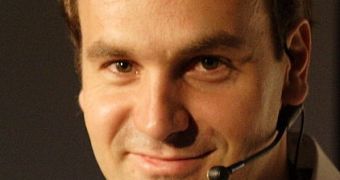Mark Shuttleworth, father of the Ubuntu operating system, announced yesterday, May 9th, at the Ubuntu Developer Summit in Budapest that Canonical's goal is to have 200 million Ubuntu users by 2015.
Ubuntu Developer Summit for Oneiric Ocelot, the upcoming version of the popular Ubuntu operating system is taking place these days in Budapest, Hungary. Mark Shuttleworth delivered yesterday morning his usual keynote where he set the goal for 200 million Ubuntu users in 4 years.
"Our goal is 200 million users of Ubuntu in 4 years. We’re not playing a game for developers hearts and minds – we’re playing a game for the worlds hearts and minds. And to achieve that we’re going to have to play by a new set of rules."
Ubuntu 11.10, dubbed Oneiric Ocelot is scheduled for release on October 13th, 2011 and the Ubuntu development team will focus their efforts on improving Unity. Both the 2D and the OpenGL versions of Unity will be available in Ubuntu 11.10.
"I think we’ve set a new bar for disciplined design in free software. For actually going through a vigorous design process, testing work against users actual experience of that, testing our assumptions, iterating based on that testing, and ultimately shooting for the stars." - said Mark Shuttleworth, Canonical Founder.
According to Prakash Advani, Partner Manager - Central Asia at Canonical, Ubuntu has around 12 million Ubuntu users globally. However, Canonical has not yet released any data about how many Ubuntu users are there right now.
In other UDS-O news, Mozilla Firefox will remain the default web browser for the upcoming Ubuntu 11.10 operating system. Also, Mozilla Thunderbird might be the default email client.
Ubuntu 11.10 (Oneiric Ocelot) will be the 15th release of the Ubuntu operating system. Ubuntu 11.10 will have three Alpha releases, one Beta release and a Release Candidate.
About Ubuntu
Ubuntu is a Linux distribution for your desktop or server, with a fast and easy install, regular releases, a tight selection of excellent packages installed by default, every other package you can imagine available from the network, and professional technical support from Canonical Ltd and hundreds of other companies around the world.

 14 DAY TRIAL //
14 DAY TRIAL //